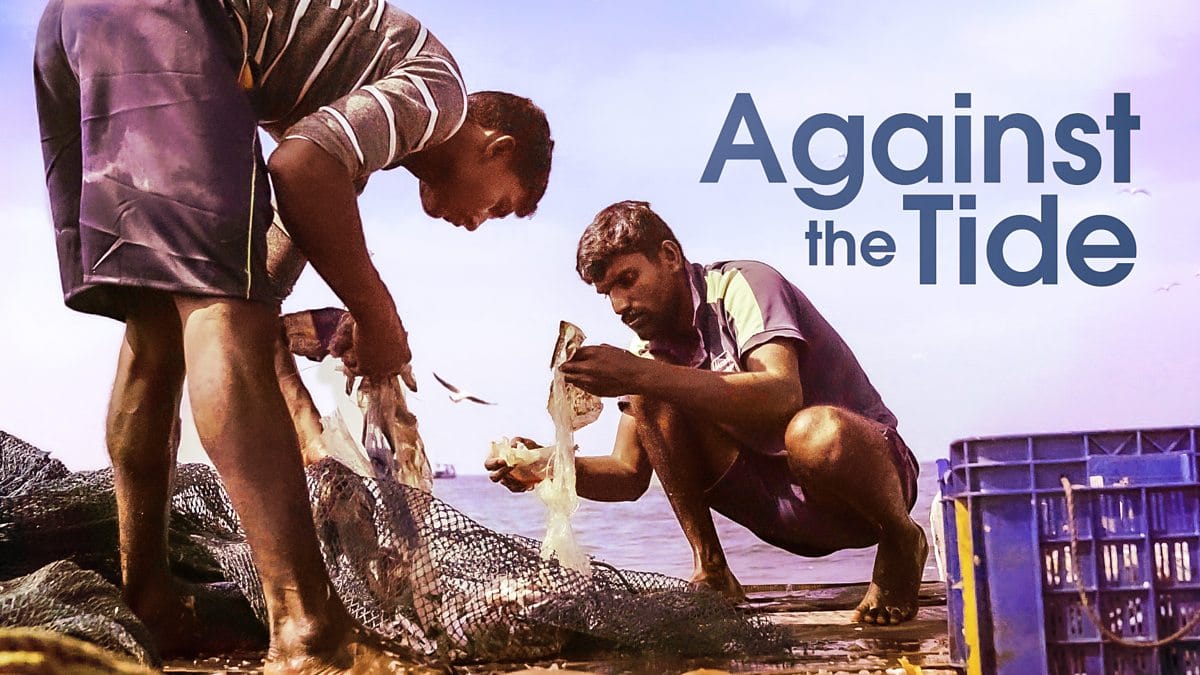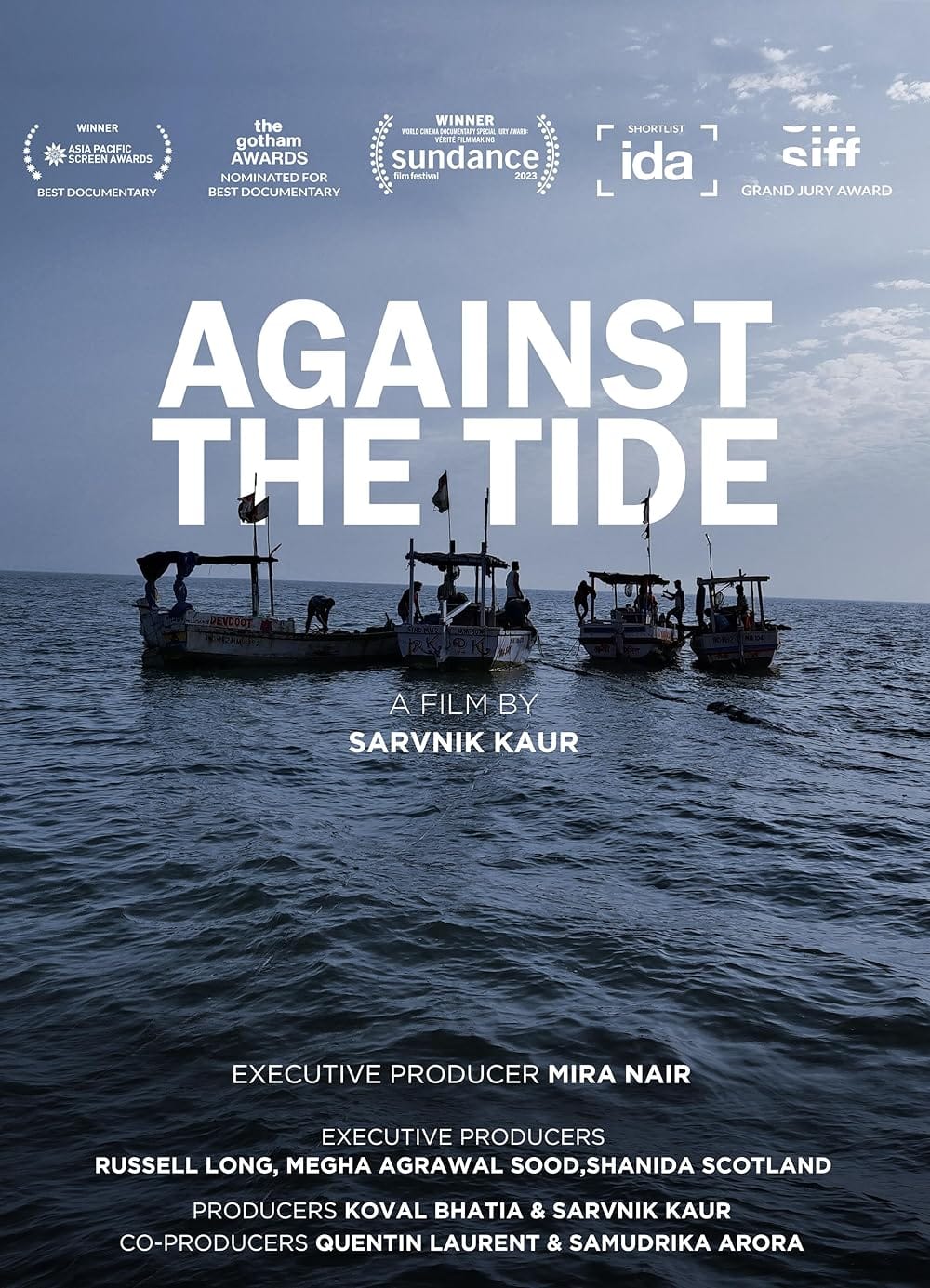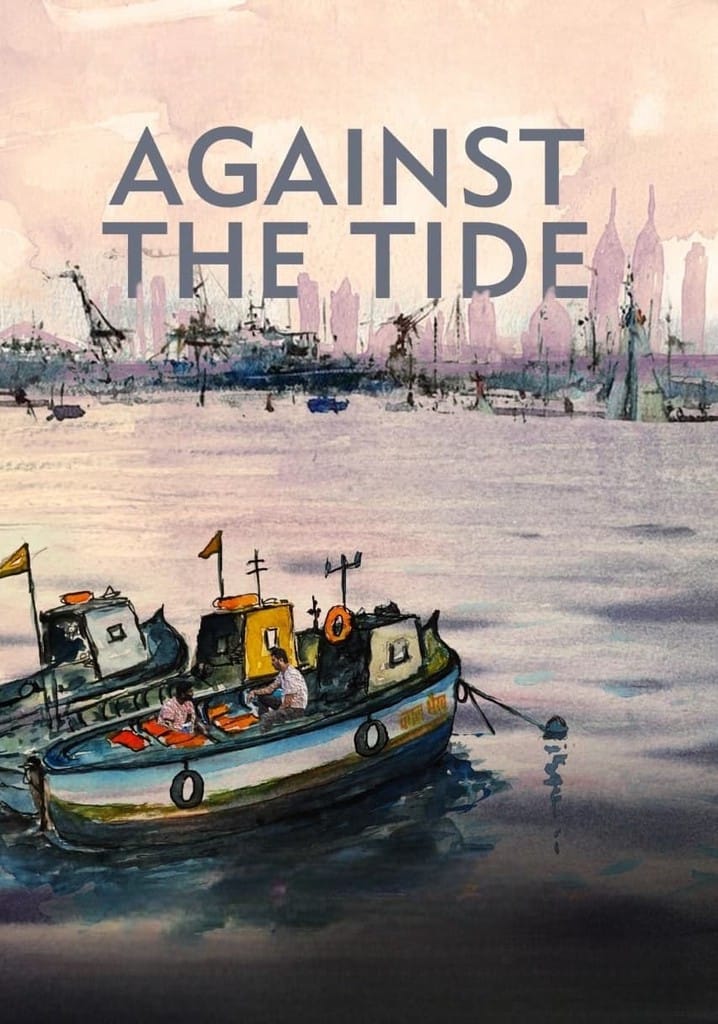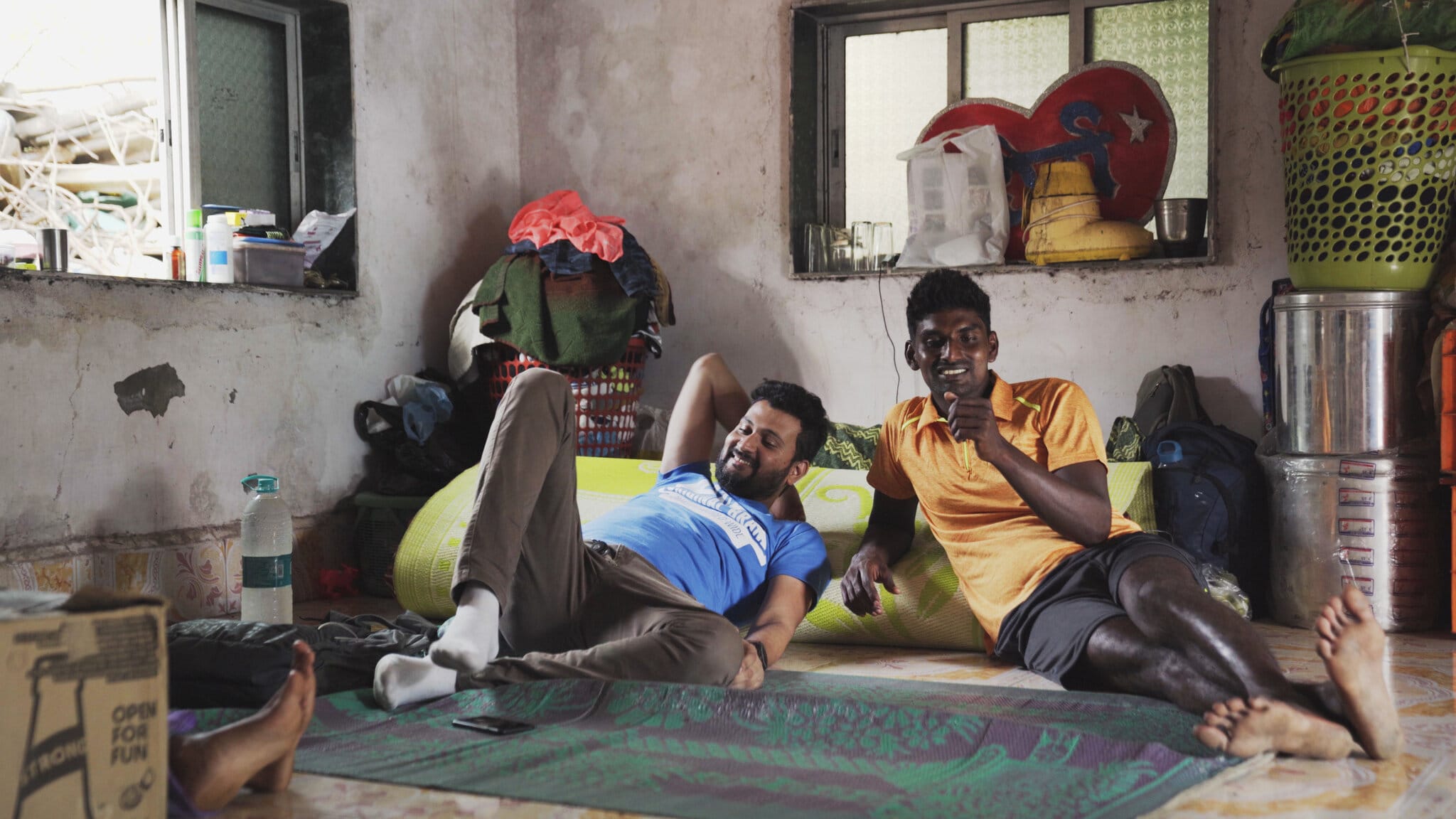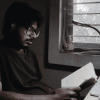The ethical conflict of wanting to be modern and yet romanticising the traditional ways seems inevitable. However, sticking to the ideal path in the world of capitalistic greed might come off as stupidity with no justifying logic according to the highly intelligible modern-human. In Against the Tide, Rakesh is that “stupid” man who is stuck in the traditional ways of fishing in shallow sea in the eyes of Ganesh– a financial advisor who returned from Scotland to make a business out of his ancestral fishing occupation.
It is important to learn to focus on beings like Rakesh because, the counterpart Ganesh might not be any different than any other highly ambitious intelligent man who can sense businesses in any idea thrown at him.
It feels like Sarvnik Kaur is urging you to look more closely and deeply into the psyche of Rakesh. He is a Koli, who doesn’t fear– a chant that you hear often, especially when a new-born is being bathed. It is important to learn to focus on beings like Rakesh because, the counterpart Ganesh might not be any different than any other highly ambitious intelligent man who can sense businesses in any idea thrown at him. So, it is important to reflect ourselves into the life of Rakesh in Against the Tide to understand the world around us a bit more profoundly that can probably make this world a better place.
LED fishing
In Against the Tide, Ganesh owns a trawler (a fishing boat with two or more nets trying to operate simultaneously). He lives in a modern house and talks big-numbers of business. Rakesh lives in a small house with coated sheets on his rooftop and he can only stare into the oblivion idyllically or play with his new-born child. There is a reason why Ganesh is more ambitious in his business and his ways of fishing. He believes in modern techniques of using LED lights to attract a maximum number of fishes. This practice was banned by the central government in 2017 after the complaints from smaller fishermen and deaths of small fishes due to LED light.
However, these covert gimmicks are to be used if we ought to make profits, he firmly believes. He argues with Rakesh over a drink that he is catching fishes at 100-120 metre depth, the depth which Rakesh won’t be able to reach with his dinghy boat. However, he doesn’t know much except that ‘It is not good for the ocean.’
‘He (Rakesh) might not speak modern language. But, he knows something deep‘, said Sarvnik Kaur in an interview with an online publication, Vague Visages.
The visuals of Against the Tide captured by Ashok Meena connect with you so deeply evoking striking thoughts that might not have occurred while watching similar beautiful deep-sea dives on the National Geographic Channel in your childhood.
The visuals of Against the Tide captured by Ashok Meena connect with you so deeply evoking striking thoughts that might not have occurred while watching similar beautiful deep-sea dives on the National Geographic Channel in your childhood. The opening shot: Plastic floats before the fish appears; introducing the theme of climate change to us. The closing shot: Huge iron pillars in the deep ocean covered with algae; representing how fishes also have to eventually learn to co-live with huge infrastructure inside the oceans. The documentary is so calm and meditative that it gives you the mental space to let your thoughts run freely without much noise– except the ambient sound.
The sound design of Against the Tide is very succinct. It is so simple but technically marvellous that it gives you an immersive experience that the depth of this documentary demands. Ofcourse, the work of Masaya Kitada, a foley artist from Japan, also has a key role in capturing the whole feel of the locale.
Against capitalistic greed
Rakesh is a much needed reminder for us to take a note of what humanity is capable of doing in the name of development. Ganesh gave up his career as a financial advisor in Scotland, mentioned by Sarvnik in an interview. Maybe, that’s why he doesn’t mind venturing into deep-seas, unlike Rakesh who does fishing in a limited area. Both belong to the same Koli Community. Yet, despite the severe health adversity of Rakesh’s child, they don’t bend the traditional ways of their Koli community. ‘Don’t get too greedy‘, reminds Rakesh’s mother when he is considering fishing with a big and more powerful boat indicating to be content with what they have.
Rakesh is even insulted by Ganesh for not having even a sandaas (toilet) in his house when he tells him that everyone is happy in his home. It is easy to pass these off as romanticisation of poverty. But, we should look a bit more deeply. Rakesh doesn’t have enough.
Rakesh is even insulted by Ganesh for not having even a sandaas (toilet) in his house when he tells him that everyone is happy in his home.
But, still, he has enough. It is the dwindling inside the circle of poverty that kept him sane and safe in Against the Tide. And, his child’s hole in the heart also got cured eventually. Whereas, Ganesh who always dreamt big to create an entrepreneurial empire by exploiting the natural resources ended up drowning in huge debt of Rs one crore.
Against the Tide: Almost a feature film
The dramatic arcs powered with the non-invasive editing by Atanas Georgiev almost makes Against the Tide feel like a feature film. One wouldn’t even doubt this is a documentary if one is not made aware of it. Therefore, Against the Tide is distinct from Sarvnik’s debut documentary– which featured more talking-heads in The Ballads of Maladies– which is available to stream for free on PBST’s Youtube channel.
Against the Tide is a must-watch documentary on climate change from India that subtly whispers the message of capitalistic greed by micro-focusing on the tale of two friends from different classes, but of the same Koli community.
‘Against the Tide’ is available to stream on MUBI.
About the author(s)
Azdhan (He/Him) is a full-time film critic freelancing for Feminism In India. If he is not reading or writing, he will just be zoning-out– even if there is no window– always thinking of writing his next novel to adapt it into a screenplay. The backend process of trying to build something that can solve urban loneliness is also always on his mind.
